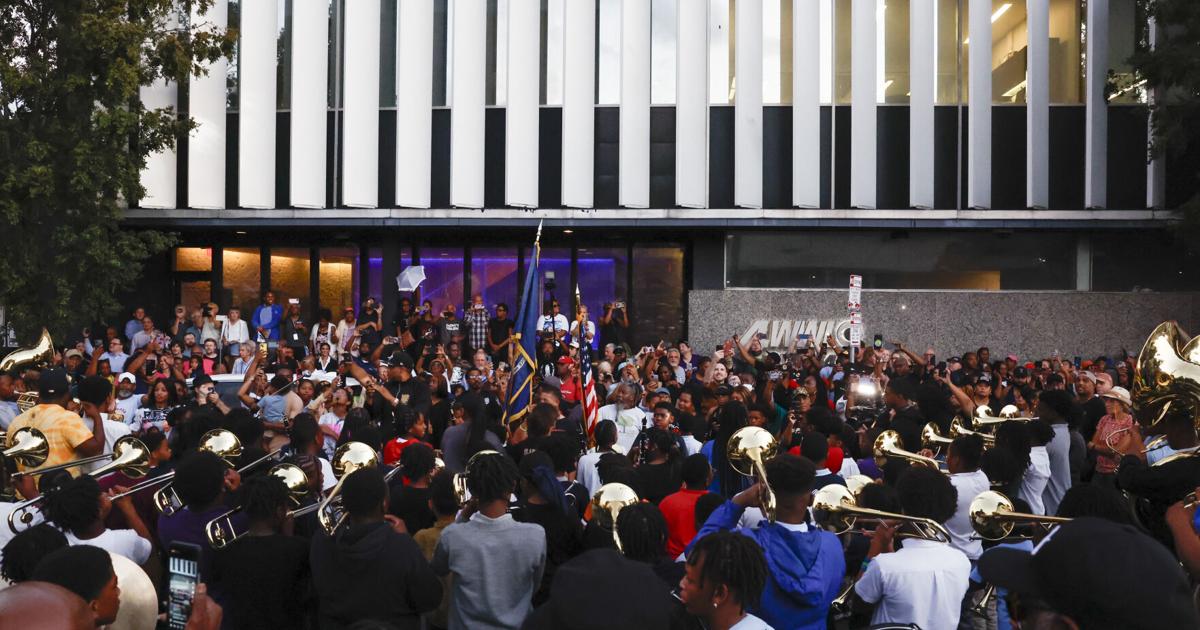In a deal that has the potential to reshape the landscape of local TV news across the country, Nexstar Media Group, which owns WGNO and WNOL in New Orleans, has announced plans to acquire rival Tegna, parent company of WWL and WUPL.
The $6.2 billion deal would give Dallas-based Nexstar, already the largest owner of TV stations in the country, a total of 265 stations in 44 states, enabling it to reach 80% of U.S. TV households.
It’s too soon to say what the deal, which must still be approved by federal regulators, will mean for the companies’ Louisiana stations. But in other cities where Nexstar has acquired stations that directly compete with stations it already owns, the company has continued to operate both.
In its announcement about the pending acquisition, Nexstar said the deal will enable traditional “legacy” media companies to better compete against online platforms and “Big Tech.”
“The new company will be better able to serve communities by ensuring the long-term vitality of local news and programming from trusted local sources,” the statement said. “Nexstar will also be able to provide advertisers with an even greater variety of competitive local and national broadcast and digital advertising solutions to serve brands and consumers more effectively.”
WWL and WGNO declined to comment.
Changing business
The deal comes as local TV stations have seen revenue continue to decrease, as viewers increasingly get their news and entertainment from other sources. By merging, media companies are able to reduce their expenses while expanding their reach, experts say.
“TV news is still a very effective way to reach people and commands a large number of viewers every night,” said Joe Duke, an adjunct professor at Loyola University and former executive at WWL and CBS. “But it’s not the business it once was.”
The average number of TVs tuned into ABC, CBS, and NBC affiliates for evening news declined from more than 4 million in 2016 to just over 3 million in 2022, according to the Pew Research Center.
“That’s what is driving these mergers and acquisitions among broadcast companies,” said Duke, who was news director in the 1980s and 1990s at WWL, during its years of dominance in the local market.
Nexstar, which got its start owning small radio stations in the early 2000s, today owns 200 stations across the country. In addition to ABC affiliate WGNO and WUPL, an independent station, it owns WGMB and WVLA in Baton Rouge and KLFY in Lafayette, as well as stations in Alexandria, Monroe and Shreveport.
In an internal memo to Nexstar employees shared with The Times-Picayune, Nexstar CEO Perry Sook said the deal is “vital to preserving local journalism that is unbiased and accurate, presented by reliable local sources, with an imperative to deliver an array of perspectives that reflect the range of communities we serve.
“Big Tech isn’t interested in any of those things as it voraciously pursues ever more views, clicks, and scrolls.”
Complicated deal
The deal could reshape the national media landscape in fundamental ways. The Federal Communications Commission has traditionally capped the number of stations that a single operator can own, limiting their reach to 39% of TV households.
The Trump administration, however, has signaled it is more friendly to large corporate mergers and the FCC is reviewing the rules limiting station ownership.
Still, expert say Nexstar’s acquisition of Tegna, which is not expected to close before the middle of 2026, is far from a done deal and will have to clear regulatory hurdles.
Complicating matters, the Wall Street Journal first reported Monday, is a competing offer for Tegna’s 65 stations from Sinclair Broadcasting.

